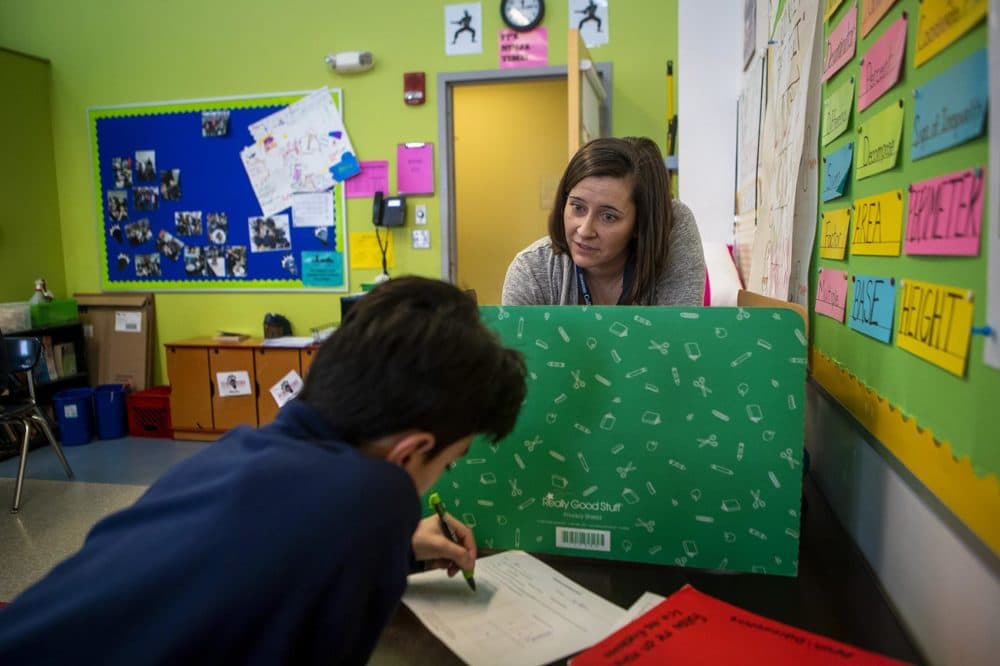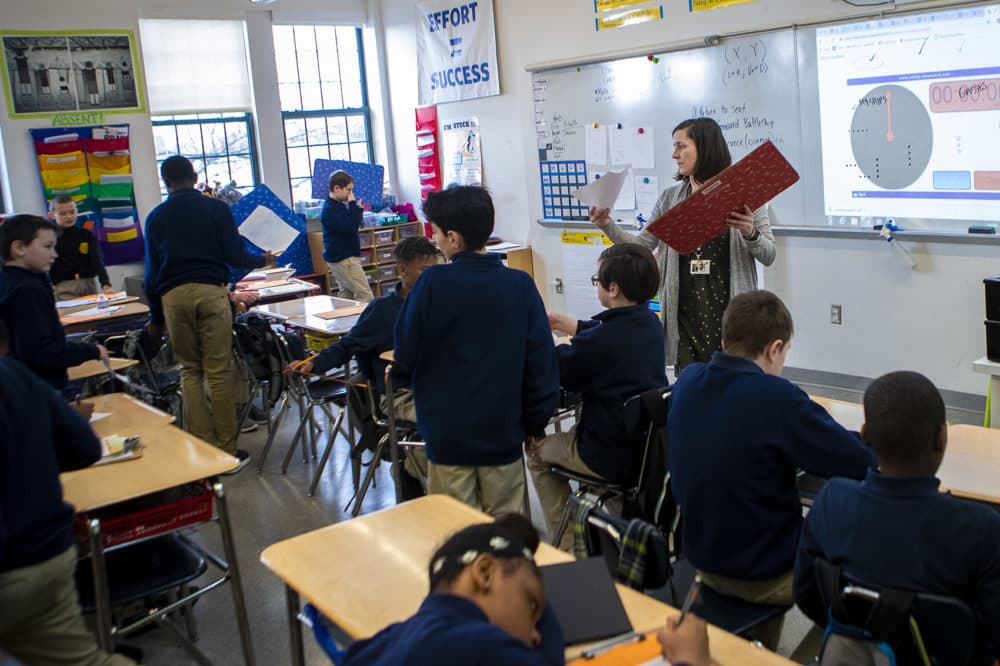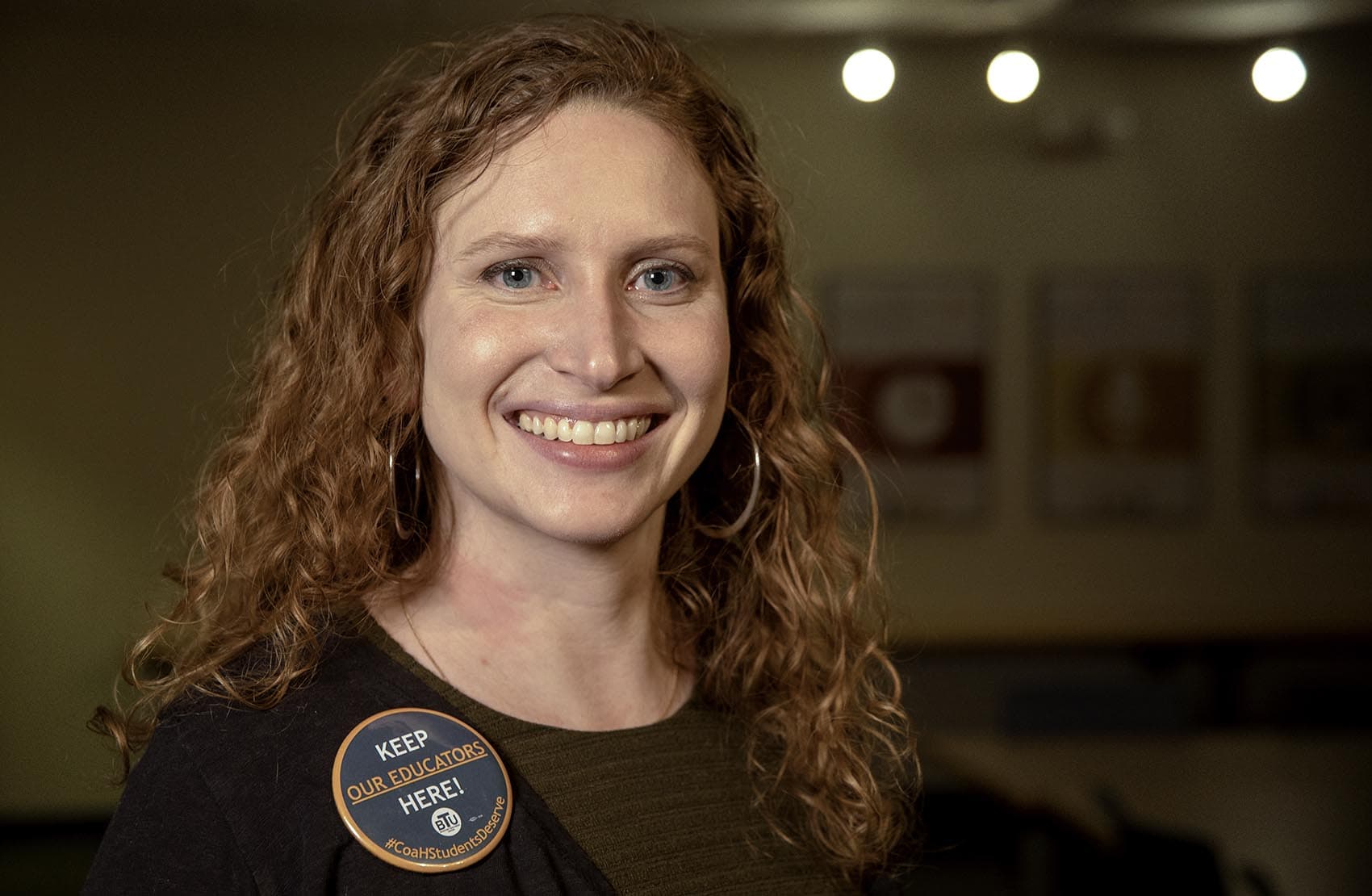Advertisement
Mass. Charter Schools Test New Ways To Reduce High Teacher Turnover
Resume
About 1 in 8 public school teachers leave their jobs in Massachusetts every year. Among charter schools, that number is even higher.
That churn is difficult for the staff staying at the school and the students.
"[Students] have so much fear about the teachers leaving," said Kimberly Luck, a history teacher at the City on a Hill Circuit Street charter school. "Sometimes when teachers are out sick two days in a row they think that the teachers have quit."
Luck has been teaching at the Roxbury school for four years, one of the longer tenures on campus. About 42 percent of teachers left their jobs at City on a Hill Circuit Street last year. On average, over the last four years, nearly 1 in 3 teachers at the school have left their jobs.
Teacher turnover has been a longstanding issue for charter schools in general. Average attrition across the charter school sector in Massachusetts has hovered around 30 percent for the last decade. That is more than double the rate at traditional districts in the state, which have been averaging about 12 percent over the last 10 years.
While numbers comparing teacher retention between traditional districts and charter schools are easy to calculate, education researchers said the reasons behind the departures are harder to pin down.
"The reasons for that could be differences in environments between charter schools and public schools," said Marcus Winters, an associate professor of education policy at Boston University's Wheelock College of Education and Human Development. "It could also be the types of teachers that move into charter schools. They tend to be younger and have different backgrounds." He explains that historically charter schools have relied heavily on teachers working with programs like Teach For America or City Year that recruit "non-traditional" candidates who did not study education in college before entering the classroom.
Traditional public schools often pay better and have shorter hours, among other things. Winters adds that while collective bargaining agreements are common at public schools in Massachusetts, they remain pretty rare among charter schools. Conservative education reformers often argue that collective bargaining agreements make it harder to remove ineffective teachers at traditional public schools.
"Part of the question is perhaps charter schools are better at removing their least effective teachers," Winters said.
That explanation has historically been widely cited by charter school leaders when defending the disparity between teacher turnover at charter schools and traditional public schools. But lately, more charter school leaders are taking a more critical look at the numbers and what's driving the departures.
"Leaders are recognizing that high rates of turnover have become somewhat unsustainable," said Nathan Barrett, the senior director of research and evaluation with the National Alliance for Public Charter Schools. "And they’re looking at creating a teacher workforce that’s going to be there longer."
In Massachusetts, that shift has resulted in a lot of new experimentation.
At the Boston Collegiate charter school in Dorchester, officials recently launched a $1 million Fund For Teaching Excellence to support more professional development programs, teacher performance bonuses and classroom tools, among other things.

It was developed, in large part, by the teachers there like sixth grade math teacher Bridget Adam. She said the school had always been responsive to teacher input. That’s a big reason why she’s stayed at the school for 16 years.
"The school itself has done a lot for me and has made adaptations," explained Adam, citing the addition of daycare services as one example. "So although we don’t get paid what another district school teacher gets paid, I feel like I’m heard."
Another school, MATCH Charter Public School in Allston, also launched a professional development program known as Rising Leaders. Emily Stainer, the school’s chief academic officer, said that was also inspired by teacher feedback.
"I think we’ve learned a lot about what it takes to both hire and retain talent," said Stainer. She added there's more to turnover cost than just the money and effort it takes to constantly train new staff. "I think a lot of us have learned the lesson that the longer a teacher is with us, the better the student results are."
But some teachers would argue this kind of responsiveness is not happening at all charter schools.
"I see people leaving because they want competitive pay, wanting consistency, wanting to have voice," said Luck, of City on a Hill Circuit Street. "I think strong professional development is incredibly important for teacher retention, but I don’t see it as cited as one of the main reasons people are leaving."

Last year, Luck’s school was one of three City on a Hill locations that voted to join the Boston Teachers Union. The union and school leaders are negotiating the terms of their first contract. In a statement, school leaders at City on a Hill said they were proud to be working with the union on an agreement that will “codify meaningful avenues for teacher input."
The leaders at Boston Collegiate and MATCH said unionization efforts at City on a Hill did not influence their decisions to launch teacher-focused programs. They said they wanted to be responsive to their teachers, because without them they would not have a school.
This segment aired on January 25, 2019.
